
In education, a curriculum is broadly defined as the totality of student experiences that occur in the educational process. The term often refers specifically to a planned sequence of instruction, or to a view of the student's experiences in terms of the educator's or school's instructional goals. A curriculum may incorporate the planned interaction of pupils with instructional content, materials, resources, and processes for evaluating the attainment of educational objectives. Curricula are split into several categories: the explicit, the implicit, the excluded, and the extracurricular.

The United States Holocaust Memorial Museum (USHMM) is the United States' official memorial to the Holocaust. Adjacent to the National Mall in Washington, D.C., the USHMM provides for the documentation, study, and interpretation of Holocaust history. It is dedicated to helping leaders and citizens of the world confront hatred, prevent genocide, promote human dignity, and strengthen democracy.

Gedenkdienst is the concept of facing and taking responsibility for the darkest chapters of one's own country's history while ideally being financially supported by one's own country's government to do so. Founded in Austria in 1992 by Andreas Maislinger the Gedenkdienst is an alternative to Austria's compulsory national military service as well as a volunteering platform for Austrians to work in Holocaust- and Jewish culture-related institutions around the world with governmental financial support. In Austria it is also referred to as Austrian Holocaust Memorial Service provided by the Austrian Service Abroad. The Austrian Gedenkdienst serves the remembrance of the crimes of Nazism, commemorates its victims and supports Jewish cultural future. The program is rooted in the acknoledgment of responsibility by the Austrian government for the crimes committed by National Socialism.

The Austrian Service Abroad is a non-profit organization founded by Andreas Hörtnagl, Andreas Maislinger and Michael Prochazka in 1998, which sends young Austrians to work in partner institutions worldwide serving Holocaust commemoration in form of the Gedenkdienst, supporting vulnerable social groups and sustainability initiatives in form of the Austrian Social Service and realizing projects of peace within the framework of the Austrian Peace Service. Its services aim at the permanence of life on earth. The Austrian Service Abroad carries and promotes the idea of the House of Responsibility for the birthplace of Adolf Hitler in Braunau am Inn. The Austrian Service Abroad is the issuer of the annually conferred Austrian Holocaust Memorial Award. The program is funded by the Austrian government.

The Montreal Holocaust Museum is a museum located in Montreal, Quebec, Canada, that is dedicated to educating people of all ages and backgrounds about the Holocaust, while sensitizing the public to the universal perils of antisemitism, racism, hate and indifference. Through the museum, its commemorative programs and educational initiatives, it aims to promote respect for diversity and the sanctity of human life. The Museum was founded in 1979 as the Montreal Holocaust Memorial Centre and is Canada's first and only recognized Holocaust museum.

The Holocaust Museum Houston is located in Houston's Museum District, in the U.S. state of Texas. The Holocaust Museum in Houston is the fourth largest in the U.S. and opened in 1996.
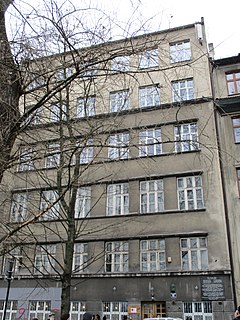
A midrasha is an institute of Torah study for women, usually in Israel, and roughly the equivalent of a yeshiva for men. A "seminary" is a similar institution, more traditional in orientation. Midrashot are Religious Zionist, while Seminaries are usually Haredi; although in English, "Seminary", or "Sem", is often used for either.
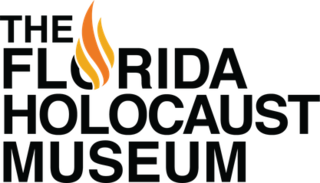
The Florida Holocaust Museum is a Holocaust museum located at 55 Fifth Street South in St. Petersburg, Florida. Founded in 1992, it moved to its current location in 1998. Formerly known as the Holocaust Center, the museum officially changed to its current name in 1999. It is one of the largest Holocaust museums in the United States. It was founded by Walter and Edith Lobenberg both of whom were German Jews who escaped persecution in Nazi Germany by immigrating to the United States. Holocaust survivor Elie Wiesel served as Honorary Chairman and cut the ribbon at the 1998 opening ceremony. The Florida Holocaust Museum is one of three Holocaust Museums that are accredited by the American Alliance of Museums. The museum works with the local community and survivors of the Holocaust to spread awareness and to educate the public on the history of the Holocaust.

Torah Umesorah – National Society for Hebrew Day Schools is an Orthodox Jewish educational charity based in the United States that promotes Torah-based Jewish religious education in North America by supporting and developing a loosely affiliated network independent private Jewish day schools.
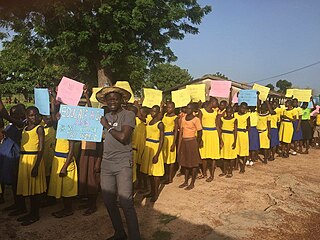
Inclusion in education refers to all students being able to access and gain equal opportunities to education and learning. It arose in the context of special education with an individualized education program or 504 plan, and is built on the notion that it is more effective for students with special needs to have the said mixed experience for them to be more successful in social interactions leading to further success in life. The philosophy behind the implementation of the inclusion model does not prioritize, but still provides for the utilization of special classrooms and special schools for the education of students with disabilities. Inclusive education models are brought into force by educational administrators with the intention of moving away from seclusion models of special education to the fullest extent practical, the idea being that it is to the social benefit of general education students and special education students alike, with the more able students serving as peer models and those less able serving as motivation for general education students to learn empathy.
Richmond Jewish Foundation is a charitable foundation based in Richmond, Virginia, USA. It is a non-profit organization.
Freedom Schools were temporary, alternative, and free schools for African Americans mostly in the South. They were originally part of a nationwide effort during the Civil Rights Movement to organize African Americans to achieve social, political and economic equality in the United States. The most prominent example of Freedom Schools was in Mississippi during the summer of 1964.

Holocaust Museum LA, formerly known as Los Angeles Museum of the Holocaust, is a museum located in Pan Pacific Park within the Fairfax district of Los Angeles, California. Founded in 1961 by Holocaust survivors, Holocaust Museum LA is the oldest museum of its kind in the United States. Its mission is to commemorate those who perished in the Holocaust, honor those who survived, educate about the Holocaust, and inspire a more dignified and humane world.
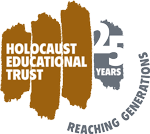
The Holocaust Educational Trust (HET) is a British charity, based in London, whose aim is to "educate young people of every background about the Holocaust and the important lessons to be learned for today."

The Northern Transylvania Holocaust Memorial Museum is located in Șimleu Silvaniei, Sălaj County, Romania, and was opened September 11, 2005. The museum is operated and maintained by the Jewish Architectural Heritage Foundation of New York and Asociația Memoraliă Hebraică Nușfalău, with the support of the Claims Conference, Elie Wiesel National Institute for Studying the Holocaust in Romania, among other philanthropic and pedagogical partners.
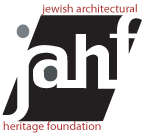
The Jewish Architectural Heritage Foundation is a non-profit, Staten Island, New York-based corporation which assumes responsibility for maintaining, restoring, renovating and building Jewish heritage buildings and monuments on a global scale. It has 501(c)(3) tax-exempt status.

The Melbourne Holocaust Museum (MHM) was founded in Elsternwick, Melbourne, Australia, in 1984 by Holocaust survivors. It is currently Australia’s largest institution dedicated to Holocaust education, research & remembrance. Its mission is to commemorate the six million Jews murdered by the Nazis between 1933 and 1945.
The Russian Research and Educational Holocaust Center was founded in 1992 in Moscow and has since then been working on awareness raising of the Holocaust in the Russian society. It is the only non-governmental organization in the Russian Federation, devoted to the study of the life of Soviet Jews during the Great Patriotic War.

USC Shoah Foundation – The Institute for Visual History and Education, formerly Survivors of the Shoah Visual History Foundation, is a nonprofit organization dedicated to making audio-visual interviews with survivors and witnesses of the Holocaust and other genocides, a compelling voice for education and action. It was established by Steven Spielberg in 1994, one year after completing his Academy Award-winning film Schindler's List. In January 2006, the foundation partnered with and relocated to the University of Southern California (USC) and was renamed the USC Shoah Foundation – The Institute for Visual History and Education. In March 2019, the institute opened their new global headquarters on USC's campus.
The Jewish Partisan Educational Foundation (JPEF) is a nonprofit organization based in San Francisco, California, that produces short films and other educational materials on the history and life lessons of the Jewish partisans. During World War II, 20,000 to 30,000 Jewish men and women fought back against the Germans and their collaborators as partisans.















